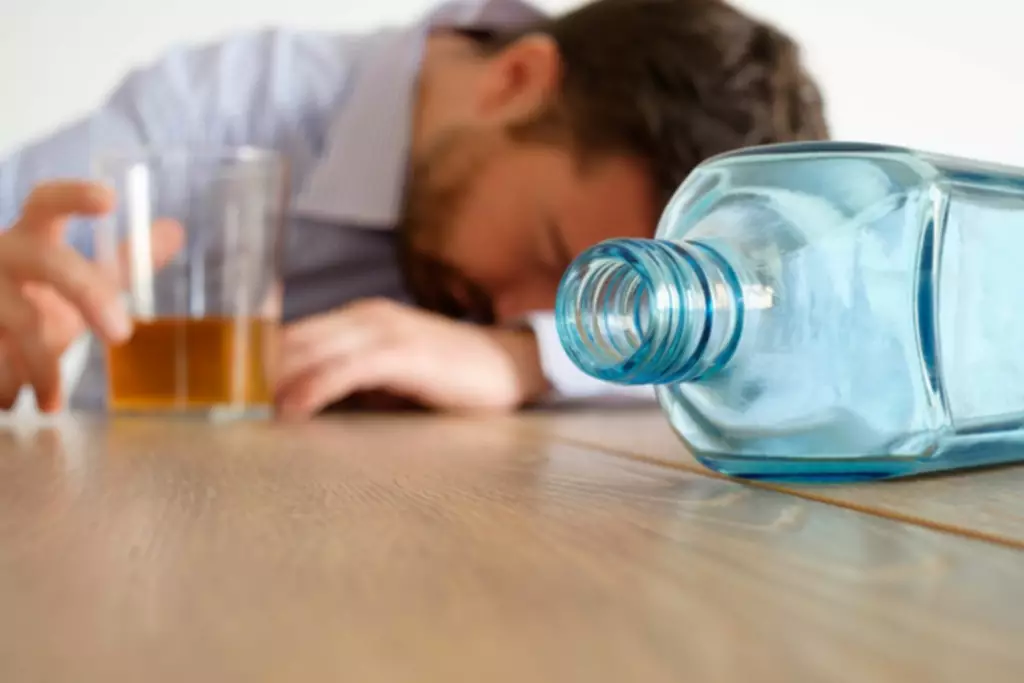Alcohol Intolerance: Symptoms, Sudden Onset & Later in Life Intolerance
Content
Researchers have found there are a few different types of tolerance that people develop in response to alcohol use. All types of tolerance are a result of your body’s adaptation to the substance, but the different forms of tolerance can be exhibited in different ways. Learn more about alcohol tolerance and how to avoid chemical dependence and substance use disorders. To drink more without getting drunk, pace yourself, hydrate between drinks, eat before drinking, and choose drinks with lower alcohol content. BMI can affect alcohol intolerance as body fat can’t absorb alcohol leading to higher blood alcohol concentration. Nonetheless, the recommended alcohol unit for men and women is 3-5 units and 2-3 units, respectively.

As a result, you’ll feel the intoxicating effects even from lower amounts of alcohol. Equally, increased alcohol consumption during lockdown could lead to increased metabolic tolerance, where a greater amount how to build alcohol tolerance of alcohol is needed to feel intoxicated. No, alcohol intolerance is not the same as being intoxicated or drunk. Alcohol intolerance doesn’t mean you become drunk faster or after drinking less alcohol.
How is alcohol intolerance diagnosed?
Rarely, severe pain after drinking alcohol is a sign of a more serious disorder, such as Hodgkin’s lymphoma. Alcohol intolerance occurs when your body doesn’t have the proper enzymes to break down (metabolize) the toxins in alcohol. https://ecosoberhouse.com/article/why-is-my-vision-blurry-after-drinking-alcohol/ This is caused by inherited (genetic) traits most often found in Asians. Alcohol intolerance can cause immediate, uncomfortable reactions after you drink alcohol. The most common signs and symptoms are stuffy nose and skin flushing.
- Several studies found that SOA’s were less impaired by alcohol
than SONA’s (28,29). - This results in a reduction of alcohol in the bloodstream, alongside its intoxicating effects.
- When you party and drink a lot, you must not consume too much alcohol regularly.
- The main cause of alcohol intolerance is a problem with how the body breaks down alcohol.
If you have any unpleasant symptoms after drinking alcohol, see your healthcare provider. Your provider can help get to the bottom of your symptoms and recommend the best next steps. People often confuse alcohol intolerance and alcohol allergy, but they aren’t the same condition. Alcohol withdrawal can begin within hours of ending a drinking session.
Reasons Why You Shouldn’t Drink Pregnant
Because the drinker does not experience significant behavioral
impairment as a result of drinking, tolerance may facilitate the consumption
of increasing amounts of alcohol. This can result in physical dependence and
alcohol-related organ damage. The development of tolerance to alcohol’s eff ects over
several drinking sessions is accelerated if alcohol is always administered
in the same environment or is accompanied by the same cues. Similar results were found when an alcohol-induced increase
in heart rate was studied in humans (12). When the study subjects always received
alcohol in the same room, their heart rate increased to a lesser extent after
drinking in that room than in a new environment. In humans, genetically
determined differences in tolerance that may affect drinking behavior were
investigated by comparing sons of alcoholic fathers (SOA’s) with sons of nonalcoholic
fathers (SONA’s).
- When you become dehydrated, your brain will receive less oxygen and it won’t function efficiently, leading to headaches, dizziness and other consequences.
- For example, rapid degradation
of sedatives (e.g., barbiturates) (23) can cause tolerance to them and increase
the risk for their use and abuse. - It’s also important to remember that drinking as much as you used to after a period of drinking less (or not at all) could lead to greater intoxication, blackout and accidents.
- Stress about money can become an issue in taking care of personal needs and appearance, as it might be spent on use in place of basic necessities.
- While occasional alcohol consumption is not something to be concerned about, it is easy to transition into the problem drinking area.
- Animal studies indicate
that some aspects of tolerance are genetically determined.
Lastly,
although we know that initial sensitivity to alcohol may play a role in the
development of alcoholism, the role of tolerance in maintaining addiction
to alcohol needs further exploration. However, certain
of these enzymes also increase the metabolism of some other drugs and medications,
causing a variety of harmful effects on the drinker. For example, rapid degradation
of sedatives (e.g., barbiturates) (23) can cause tolerance to them and increase
the risk for their use and abuse. Increased metabolism of some prescription
medications, such as those used to prevent blood clotting and to treat diabetes,
reduces their effectiveness in chronic drinkers or even in recovering alcoholics
(24).
Who might have alcohol intolerance?
There are two options to prevent raising your tolerance, according to UHS Substance Abuse Prevention Specialist Jennifer Damask. Also, it is affected directly by the type of alcohol you will consume, the presence of different food in your stomach, and your drinking rate. When you consume alcohol, it will affect your health and behavior largely.
How can I increase my alcohol tolerance naturally?
- Food. This is absolutely essential.
- You Must Choose, But Choose Wisely.
- Just Add Water.
- Rest Up.
- Supplemental Materials.
- Approach Caffeine With Caution.
- Training.
- Use Brain Good.
They’re cheap, they’re electrolyte-balanced, it’s easy to keep a couple in your pocket, AND they have all the B vitamins you need. General fatigue or tiredness will lead to a higher BAC than normal as one’s liver is less efficient at processing and/or eliminating alcohol when one’s general energy level is low. Furthermore, as alcohol is a depressant, consuming alcohol when tired will, in general, simply increase one’s level of tiredness while magnifying alcohol’s traditional effects. Your healthcare provider will ask you about the symptoms and reactions that occur after you drink alcohol. Daily drinking can have serious consequences for a person’s health, both in the short- and long-term. Many of the effects of drinking every day can be reversed through early intervention.
Levels of Drunkenness
Increasing your alcohol tolerance is best done by gradually drinking more servings over time, but there are also things you can do before drinking that will help, too. The most important thing to remember, though, is that you should always drink responsibly, which means pacing yourself and stopping when you or others think you’ve had enough. Tolerance can develop much more quickly if alcohol is always consumed in the same environment – for example, if you only drank at home during lockdown. As we drink over the course of an evening the amount of alcohol in our bloodstream increases, leading to slower reaction times, lowered inhibitions and impaired judgement.
A higher tolerance means you are likely to drink more at one time, which puts you at risk for experiencing adverse and potentially dangerous side effects from alcohol. If you have a developed an alcohol tolerance that you are ready to address, there are safe ways to lower it. The National Institute on Drug Abuse (NIDA) explains that dependence is also not the same thing as addiction, though it is a step further than tolerance. Dependence means your body has become physically and/or mentally dependent on the drug to function.
Lemon in Beer: Does It Have Health Benefits or Is It Just for Taste?
I estimate that I’ll be able to down a liter and be mild/medium drunk. But when the semester begins and you go to a party where there is no beer, your body will respond to the change. Instead of a bonfire, it’s a pool party, and instead of beer, you try another type of alcohol. You will need to practice and follow a few suggestions to raise your alcohol tolerance, and we have described them in the sections above.




